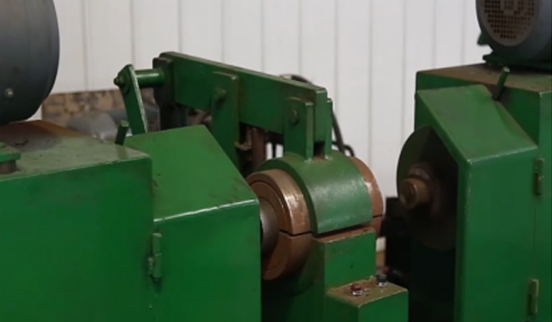 Afrikaans
Afrikaans  Albanian
Albanian  Amharic
Amharic  Arabic
Arabic  Armenian
Armenian  Azerbaijani
Azerbaijani  Basque
Basque  Belarusian
Belarusian  Bengali
Bengali  Bosnian
Bosnian  Bulgarian
Bulgarian  Catalan
Catalan  Cebuano
Cebuano  Corsican
Corsican  Croatian
Croatian  Czech
Czech  Danish
Danish  Dutch
Dutch  English
English  Esperanto
Esperanto  Estonian
Estonian  Finnish
Finnish  French
French  Frisian
Frisian  Galician
Galician  Georgian
Georgian  German
German  Greek
Greek  Gujarati
Gujarati  Haitian Creole
Haitian Creole  hausa
hausa  hawaiian
hawaiian  Hebrew
Hebrew  Hindi
Hindi  Miao
Miao  Hungarian
Hungarian  Icelandic
Icelandic  igbo
igbo  Indonesian
Indonesian  irish
irish  Italian
Italian  Japanese
Japanese  Javanese
Javanese  Kannada
Kannada  kazakh
kazakh  Khmer
Khmer  Rwandese
Rwandese  Korean
Korean  Kurdish
Kurdish  Kyrgyz
Kyrgyz  Lao
Lao  Latin
Latin  Latvian
Latvian  Lithuanian
Lithuanian  Luxembourgish
Luxembourgish  Macedonian
Macedonian  Malgashi
Malgashi  Malay
Malay  Malayalam
Malayalam  Maltese
Maltese  Maori
Maori  Marathi
Marathi  Mongolian
Mongolian  Myanmar
Myanmar  Nepali
Nepali  Norwegian
Norwegian  Norwegian
Norwegian  Occitan
Occitan  Pashto
Pashto  Persian
Persian  Polish
Polish  Portuguese
Portuguese  Punjabi
Punjabi  Romanian
Romanian  Russian
Russian  Samoan
Samoan  Scottish Gaelic
Scottish Gaelic  Serbian
Serbian  Sesotho
Sesotho  Shona
Shona  Sindhi
Sindhi  Sinhala
Sinhala  Slovak
Slovak  Slovenian
Slovenian  Somali
Somali  Spanish
Spanish  Sundanese
Sundanese  Swahili
Swahili  Swedish
Swedish  Tagalog
Tagalog  Tajik
Tajik  Tamil
Tamil  Tatar
Tatar  Telugu
Telugu  Thai
Thai  Turkish
Turkish  Turkmen
Turkmen  Ukrainian
Ukrainian  Urdu
Urdu  Uighur
Uighur  Uzbek
Uzbek  Vietnamese
Vietnamese  Welsh
Welsh  Bantu
Bantu  Yiddish
Yiddish  Yoruba
Yoruba  Zulu
Zulu belt wiper
The Belt Wiper An Essential Component in Industrial Applications
In the realm of industrial machinery and processes, the necessity for cleanliness cannot be overstated. Among the various components that facilitate the smooth operation of machines, the belt wiper stands out as a crucial part, designed specifically to maintain the efficacy and longevity of conveyor belts and other equipment. This article explores the importance, functionality, and applications of belt wipers in various industries.
What is a Belt Wiper?
A belt wiper is a component typically mounted on conveyor systems, designed to remove debris, dust, and moisture from the surface of the belt. Often made from durable materials like rubber or polyurethane, belt wipers ensure that the belt operates optimally by keeping it free from contaminants that could lead to wear and tear. Given that conveyor belts are pivotal in industries such as mining, manufacturing, and food processing, the wiper plays a significant role in enhancing operational efficiency.
The Importance of Belt Wipers
Maintaining the cleanliness of conveyor belts is essential for several reasons. Firstly, contaminants such as dirt, metal shavings, and moisture can lead to the degradation of the belt material over time. This degradation can cause unexpected breakdowns, resulting in costly downtime and repairs. By using a belt wiper, operators can extend the operational life of the conveyor system, leading to significant savings in maintenance costs.
Secondly, cleanliness is crucial for product quality, especially in industries like food processing, pharmaceuticals, and electronics. Any dirt or foreign material can compromise the integrity of the products being transported. By ensuring a clean working environment, belt wipers contribute to upholding stringent quality standards.
Functionality and Design
belt wiper

Belt wipers are ingeniously designed for efficiency. They usually feature a flexible blade that makes contact with the surface of the belt, effectively scraping off any unwanted material. The design often includes adjustable tension settings, allowing for optimal pressure to be applied to different types of belts. This adaptability ensures that the wiper performs effectively across various applications without causing damage to the belt itself.
In addition to traditional wipers, there are belt cleaning systems integrated into the machinery, which may include multiple cleaning components working in conjunction. These systems can enhance productivity by minimizing the need for manual cleaning and maintenance, thus allowing operators to focus on core tasks.
Applications Across Industries
Belt wipers find applications in numerous industries. In mining, they help in keeping the heavy-duty belts clean, preventing material buildup that could hinder performance. In the food processing sector, where hygiene is paramount, belt wipers contribute to maintaining sanitary conditions, ensuring compliance with health regulations. Similarly, in manufacturing, they enhance the efficiency of production lines by keeping conveyor belts free from debris that could cause jams and delays.
Moreover, with the rise of automated systems and robotics in various sectors, the importance of maintaining clean and reliable conveyor systems cannot be ignored. Belt wipers play a vital part in facilitating the seamless operation of these advanced systems.
Conclusion
In conclusion, the belt wiper is more than just a minor component; it is an essential element that contributes significantly to the efficiency, reliability, and cleanliness of industrial operations. By prolonging the life of conveyor belts and ensuring product quality, belt wipers serve a critical role in various industries. As industrial processes continue to evolve, the importance of such components will only grow, underscoring the need for innovation and effective maintenance strategies in an increasingly competitive landscape. Investing in quality belt wipers is not just a maintenance task; it is a smart business decision that pays dividends in the long run.
-
Revolutionizing Conveyor Reliability with Advanced Rubber Lagging PulleysNewsJul.22,2025
-
Powering Precision and Durability with Expert Manufacturers of Conveyor ComponentsNewsJul.22,2025
-
Optimizing Conveyor Systems with Advanced Conveyor AccessoriesNewsJul.22,2025
-
Maximize Conveyor Efficiency with Quality Conveyor Idler PulleysNewsJul.22,2025
-
Future-Proof Your Conveyor System with High-Performance Polyurethane RollerNewsJul.22,2025
-
Driving Efficiency Forward with Quality Idlers and RollersNewsJul.22,2025





























